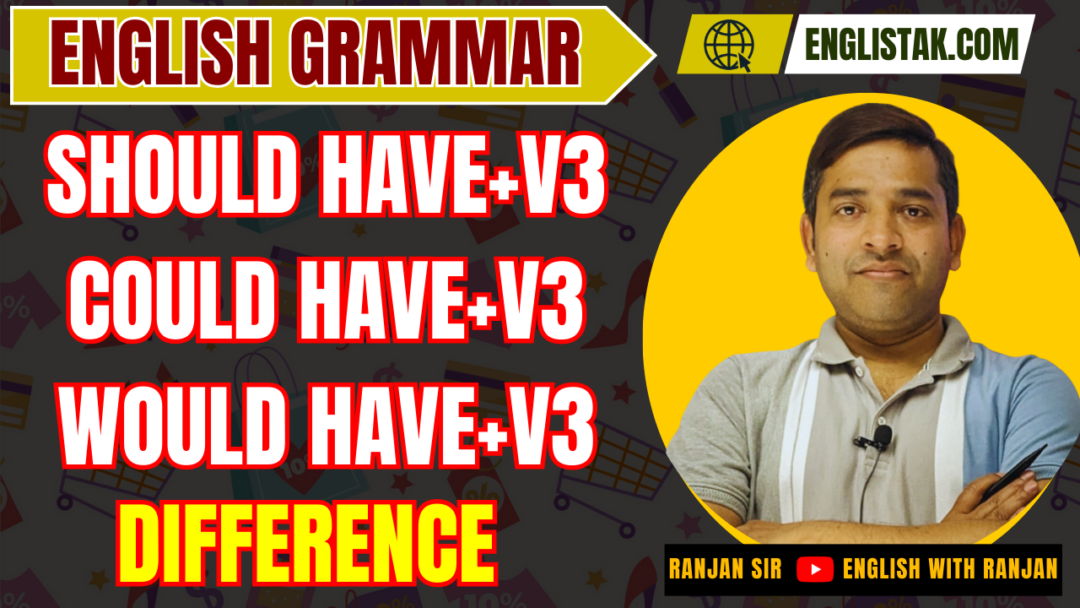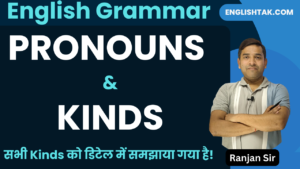![]()
Difference B/W Should Have+V3 Could Have+V3 and Would Have+V3
Table of Contents
Should Have+V3 Could Have+V3 and Would Have+V3 – Mastering English grammar requires understanding the nuances of different modal verbs, especially when discussing past possibilities, regrets, and hypothetical situations. Three commonly confused structures—“should have + V3,” “could have + V3,” and “would have + V3”—each carry distinct meanings. While “should have” expresses obligation or missed advice, “could have” indicates past possibility or ability, and “would have” refers to hypothetical situations that did not occur. In this blog, we’ll break down these structures with detailed explanations and examples in both English and Hindi to help you use them correctly in daily conversations and exams.
Should Have+V3 Could Have+V3 and Would Have+V3
Below is a detailed explanation of the differences between the constructions “should have + V3”, “could have + V3”, and “would have + V3” along with 10 examples for each form. In these constructions, V3 refers to the past participle of the verb.
1. “Should have + V3”
Structure – Sub + Should Have + V3 + Obj
Explanation:
- Usage:
This form is used to express regret, reproach, or a missed obligation/advice in the past. It implies that an action was expected or recommended, but it did not happen. - Example Meaning:
“You should have finished your homework” means it was the right or expected thing to do, but it wasn’t done.
Examples with Hindi Translations:
- You should have finished your homework.
तुम्हें अपना होमवर्क खत्म कर लेना चाहिए था। - He should have apologized.
उसे माफी माँग लेनी चाहिए थी। - They should have informed us earlier.
उन्हें हमें पहले सूचित कर देना चाहिए था। - I should have taken your advice.
मुझे तुम्हारी सलाह लेनी चाहिए थी। - She should have studied harder.
उसे और मेहनत करनी चाहिए थी। - We should have left on time.
हमें समय पर निकल जाना चाहिए था। - You should have seen that movie.
तुम्हें वह फिल्म देखनी चाहिए थी। - He should have listened to me.
उसे मेरी बात सुन लेनी चाहिए थी। - They should have been more careful.
उन्हें ज्यादा सावधान रहना चाहिए था। - I should have known about the meeting.
मुझे मीटिंग के बारे में पता होना चाहिए था।
2. “Could have + V3”
Structure – Sub + Could Have + V3 + Obj
Explanation:
- Usage:
This form is used to express a possibility or capability in the past that did not occur. It often points to a missed opportunity or an unrealized potential. - Example Meaning:
“You could have won the game” implies that it was possible for you to win, but you did not.
Examples with Hindi Translations:
- You could have won the game.
तुम खेल जीत सकते थे। - He could have been a great leader.
वह एक महान नेता बन सकता था। - They could have solved the problem.
वे समस्या का समाधान कर सकते थे। - I could have helped you.
मैं तुम्हारी मदद कर सकता था। - She could have cooked a delicious meal.
वह एक स्वादिष्ट खाना बना सकती थी। - We could have avoided the mistake.
हम गलती से बच सकते थे। - You could have called me.
तुम मुझे कॉल कर सकते थे। - He could have finished the work on time.
वह समय पर काम पूरा कर सकता था। - They could have understood the issue.
वे मुद्दे को समझ सकते थे। - I could have been there if I had time.
अगर मेरे पास समय होता तो मैं वहाँ हो सकता था।
3. “Would have + V3”
Structure – Sub + Would Have + V3 + Obj
Explanation:
- Usage:
This form is typically used to indicate a hypothetical outcome in the past that did not occur because a certain condition was not met. It is often found in conditional sentences (third conditional). - Example Meaning:
“I would have helped you if you had asked” means that the help was conditional on the asking; since you did not ask, the help did not happen.
Examples with Hindi Translations:
- I would have helped you if you had asked.
अगर तुमने पूछा होता तो मैं तुम्हारी मदद करता। - He would have won the race if he hadn’t injured his leg.
अगर उसकी टांग घायल न होती तो वह दौड़ जीत जाता। - They would have joined us if they were invited.
अगर उन्हें आमंत्रित किया जाता तो वे हमारे साथ शामिल होते। - I would have bought that car if it was within my budget.
अगर वह मेरी बजट के भीतर होता तो मैं वह कार खरीदता। - She would have accepted the offer if it was fair.
अगर प्रस्ताव उचित होता तो वह इसे स्वीकार कर लेती। - We would have arrived earlier if there was no traffic.
अगर ट्रैफिक नहीं होता तो हम जल्दी पहुँच जाते। - You would have enjoyed the concert if you had been there.
अगर तुम वहाँ होते तो तुम कॉन्सर्ट का आनंद लेते। - He would have passed the exam if he had studied more.
अगर उसने और पढ़ाई की होती तो वह परीक्षा में पास हो जाता। - They would have visited us if they had known about our party.
अगर उन्हें हमारे पार्टी के बारे में पता होता तो वे हमसे मिलने आते। - I would have stayed longer if I weren’t leaving.
अगर मैं जा नहीं रहा होता तो मैं और रुका रहता।
Summary of Differences:
- Should have + V3:
Expresses an expectation, duty, or advice that was not fulfilled.
E.g., “You should have finished your homework.” - Could have + V3:
Indicates a possibility or ability in the past that was not realized.
E.g., “You could have won the game.” - Would have + V3:
Describes a hypothetical scenario or a conditional outcome that didn’t happen because the condition wasn’t met.
E.g., “I would have helped you if you had asked.”
Conclusion
Understanding the differences between “should have,” “could have,” and “would have” can significantly improve your English communication skills, especially when talking about past events and hypothetical scenarios. By practicing these structures with real-life examples, you’ll gain confidence in expressing possibilities, regrets, and conditions accurately. Keep revisiting these concepts and applying them in your conversations, and soon, using these modals will become second nature. If you have any questions, feel free to ask in the comments! Happy learning!
English Grammar in Hindi
Inversions All Rules in English
Adverbs MCQ – Objective Question Answer
Prepositions Rules in English Grammar in Hindi
List of Conjunctions and Rules in English Grammar
100 Most Common Prepositions Phrase with Hindi
Tenses Fill in the Blanks Exercise Set-11
Future Continuous Tense Translation Exercises: 100 Sentences
List of Top 100 Preposition with Hindi
List of English Prepositions with Hindi Pdf






